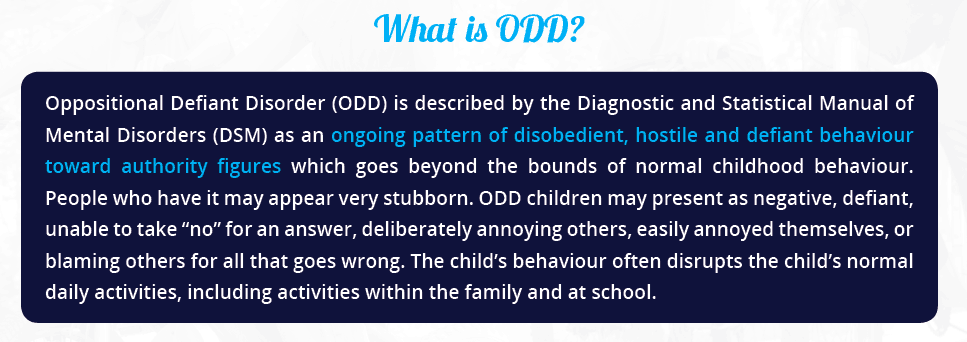ODD AND PDA
Have you heard of ODD (Oppositional Defiance Disorder) & PDA (Pathological Demand Avoidance)? I am seeing more and more children with a dual diagnosis of ASD and ODD & PDA. It is generally agreed PDA is part of the Autism Spectrum Conditions whereas ODD can occur on its own.
Phil Christie, a child psychologist, said “It is inevitably the case that when conditions are defined by lists of behavioural features there will be interconnections and overlaps. This results in certain aspects of ODD and PDA presenting in a similar ways”


What you might see with either ODD or PDA
- Refuses to do what is asked
- Always answers with “No”
- Talks back
- Deliberately ignores instructions
- Won’t participate in activities
- Makes own rules
- Angers very easily
- Stuck in negative thought patterns
- Has strong likes and dislikes but often can’t tell you why
- Withdrawing into fantasy world
- Giving excuses like ‘I’m tired’ or complaining of physical impairment ‘my hand hurts’
Although there is some debate over whether ODD and PDA are different disorders or the same, I find similar strategies seem to be effective for both.

Want to learn more?
Recommended Resources for PDA and ODD



 For all orders outside Australia please email
For all orders outside Australia please email 